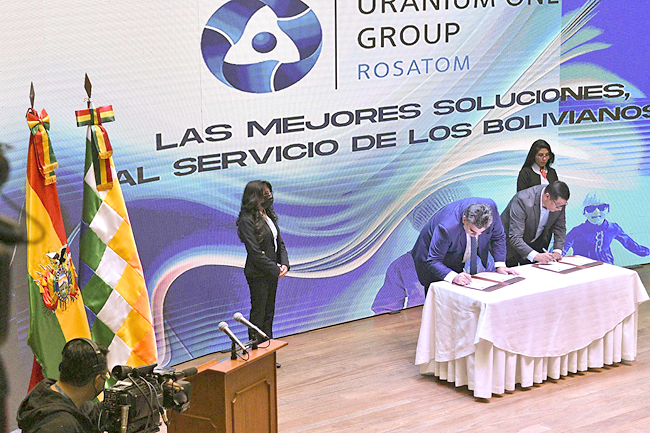LA PAZ (AFP) – China and Russia will invest USD1.4 billion in lithium projects in Bolivia, a South American nation with vast reserves of the metal crucial for batteries to power electric vehicles, the government said on Thursday.
China’s Citic Guoan and Russia’s Uranium One Group, both with strong state participation, will partner with Yacimientos de Litio Bolivianos (YLB) to install two lithium carbonate plants, President Luis Arce said at a public event.
As the world shifts towards cleaner energy, lithium has become more important due to its use in rechargeable lithium-ion batteries for vehicles and in renewable energy storage systems.
Bolivian, Chinese and Russian representatives of the three companies were present at the signing of the agreement.
In January Arce’s government signed another agreement with the Chinese consortium Catl Brunp & Cmoc (CBC) to install two lithium battery plants. CBC pledged an investment of at least USD1 billion.

According to the government’s presentation, Uranium One Group will invest USD578 million in a plant in the Pastos Grandes salt flats and China’s Citic Guoan USD857 million in a second plant north of the Uyuni salt flats, both in the southwest Andean department of Potosi.
The Ministry of Hydrocarbons and Energy said in a statement that “each of the complexes will have the capacity to produce up to 25,000 metric tonnes per year”.
Bolivia has certified its lithium reserves in the Uyuni salt flats at 21 million tonnes and assures that it is the world’s biggest source.
Despite its huge reserves, Bolivia has struggled to exploit its lithium, partly due to geography, political tensions and lack of technical know-how.
The Ministry of Hydrocarbons reported last January that by 2025 it expects to export USD5 billion of lithium, which would exceed its earnings from natural gas, which in 2022 generated revenues of USD3.4 billion and is the country’s main source of income.




